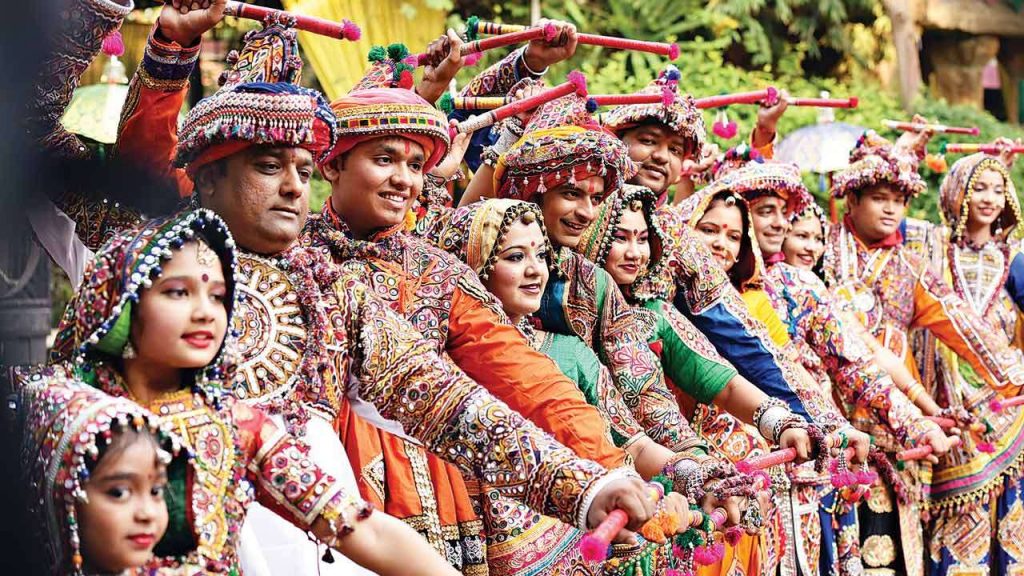
It was an unique experience for 23-year-old Kunal Joshi, who has been staying in Ahmedabad for about seven years now. He was part of a group of 50-odd persons, mostly youngsters, who had participated in the Navratri Heritage Walk, organized by city-based voluntary organisation ‘The Durbeen’.
Recently they had visited a number of places in old city area, where garba continues to be performed in the traditional manner, indifferent to the changes that have taken place over past few decades especially in the areas of music and dance. There are no professionals and it is the residents who sing garba so accompanied with the beats of dhol and nagara.
The group was recently in Dhal Ni Pol, which has a twin combination of heritage buildings and the residents have also continued age-old tradition of garba. “We normally go to party plots, where everyone is doing garba in their own style. However, here we witnessed a synchronized garba with over a hundred participants. There was no orchestra, no celebrity singers. Local elderly ladies sung while men and women danced with same steps.
Jigar Darji, resident of the pol, who had hosted the group said that the tradition continues from their forefathers and there is no change inspite of changes elsewhere. “This must be at least 90 years old. We start with setting up the mandvo of goddess Amba, have ‘Akhand Diva’ (earthern lamps lighting till the end of the function). Then, men and women come together and perform garba,” informed Darji. “On eighth and ninth night, we have aarti of 1,008 diyas. People from various places come here to have a glimpse of the tradition,” added Darji.
The entire program was organised by ‘The Durbeen’ a voluntary group of young people who give exposure about past traditions to people. “Unlike commercial garba, this garba has unique inter-personal involvement and camaraderie, which is absent in party plots. Inspite of so many temptations, locals have preserved the traditions and that is what we want to showcase,” said Paarth Sharma, founder of The Durbeen.
Absence of orchestra and sound system has a unique advantage as well. Since there is not sound pollution, garba continue here till early morning. “People get tired, but do not stop garba. It is the twilight that reminds them that they have a day ahead. It’s then that garba stops,” said Sharma. Garba continuing till early morning was a routine affair till about two decades ago. It was the directions by the courts, which has restricted the time of doing garba. This sheri garba is like a time travel that gives you a peak into the past.


